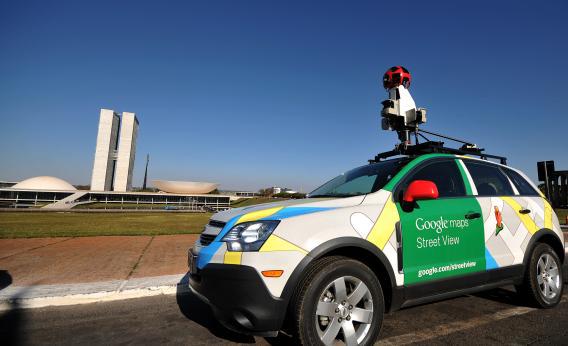Last week, Google agreed to pay a $25,000 fine to the FCC for allegedly obstructing an investigation into the search giant’s Street View cars collected and stored private data from unsecured wi-fi networks. The company said that it disagreed with the FCC but would pay the fine “to put this investigation behind it.”
The FCC’s final report on the investigation was heavily redacted. But on Sunday, according to the Guardian, Google posted the report with only a few names obscured in the interest of transparency. In a statement, Google said, “We decided to voluntarily make the entire document available except for the names of individuals. While we disagree with some of the statements made in the document, we agree with the FCC’s conclusion that we did not break the law. We hope that we can now put this matter behind us.”
The 25-page document, available here, gives us new information about the origins of the data collection project that would induce so many headaches for Google. A Google employee referred to as “Engineer Doe” conceived of the “wardriving” project as a way to collect more information about how users behave, perhaps leading to new or improved Google products. In project paperwork, he recognized that there could be privacy concerns and in one design document included “discuss privacy considerations with Product Counsel” as a to-do item, but that conversation never took place.
InformationWeek’s Matthew J. Schwartz gets to the crux of it, writing that the report
raises numerous questions, such as why a Google engineer who was working on Street View only part-time (as part of Google’s practice of allowing its employees to spend 20% of their time working on other projects) was allowed to make global data-interception decisions that apparently faced no legal review and was rubberstamped by managers.
During the investigation, the FCC subpoenaed Engineer Doe, but he invoked his Fifth Amendment right not to self-incriminate.
Read more on the Guardian and InformationWeek.
